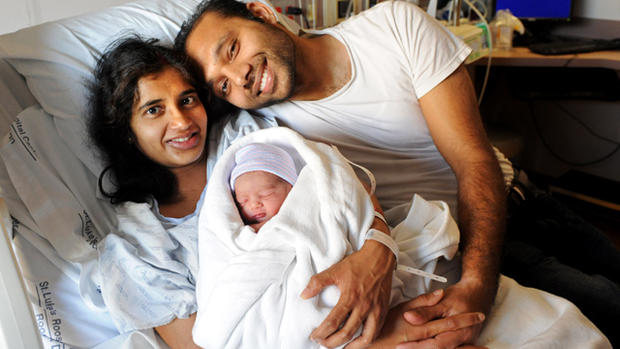Where's the best country to be a mom?
(CBS News) If you're going to be a new mother, you might want to move to Norway. According to a new study, Norwegian moms have it best.
Save the Children released their 13th annual State of the World's Mothers report on Tuesday. The study takes a look at several factors including maternal health, education and economic status, as well as the health and nutrition of their children.
CDC: More U.S. women having twins
The U.S. is only number 25 on the list - far behind Australia, the United Kingdom and Canada. The life expectancy of a woman in the United States is 81 years and expected years of education is high at 18 years. But , there is a relatively high risk of maternal death in America with a rate of 1 out of 2,100, especially when compared to Japan (1 in 12,200) or Ireland (1 out of 17,800). The rate is the worst out of any industrialized nation.
American mothers only get 12 weeks of maternity leave - the lowest amount of time out of all the Tier I countries that were analyzed - and have no national program to help pay their wages during that time unlike the countries that top the list. Australians and Canadians get a full year off. Women in the U.S. also hold fewer positions in politics than in other industrialized nations, and many children forgo preschool.
The worst country to be a mother was Niger. Women get just 4 years of education on average, are likely to lose a child at some point during their lives and have a life expectancy of only 56 years. Previously, Afghanistan was at the bottom of the list, but improvements have been made in the country, including raising the school enrollment rate from 20 to 97 percent from 2000 to today.
Among the findings, the aid organization said that many children are not getting adequate nutrition in their first 1,000 days. In fact, out of 73 developing countries - which account for 95 percent of child deaths - only four scored "very good" on their young child nutrition scale. They are urging all nations to help ensure every child gets the food they need to grow.
"Stunting, or stunted growth, occurs when children do not receive the right type of nutrients, especially in utero or during the first two years of life," the organization wrote. "Children whose bodies and minds are limited by stunting are at greater risk for disease and death, poor performance in school, and a lifetime of poverty."

